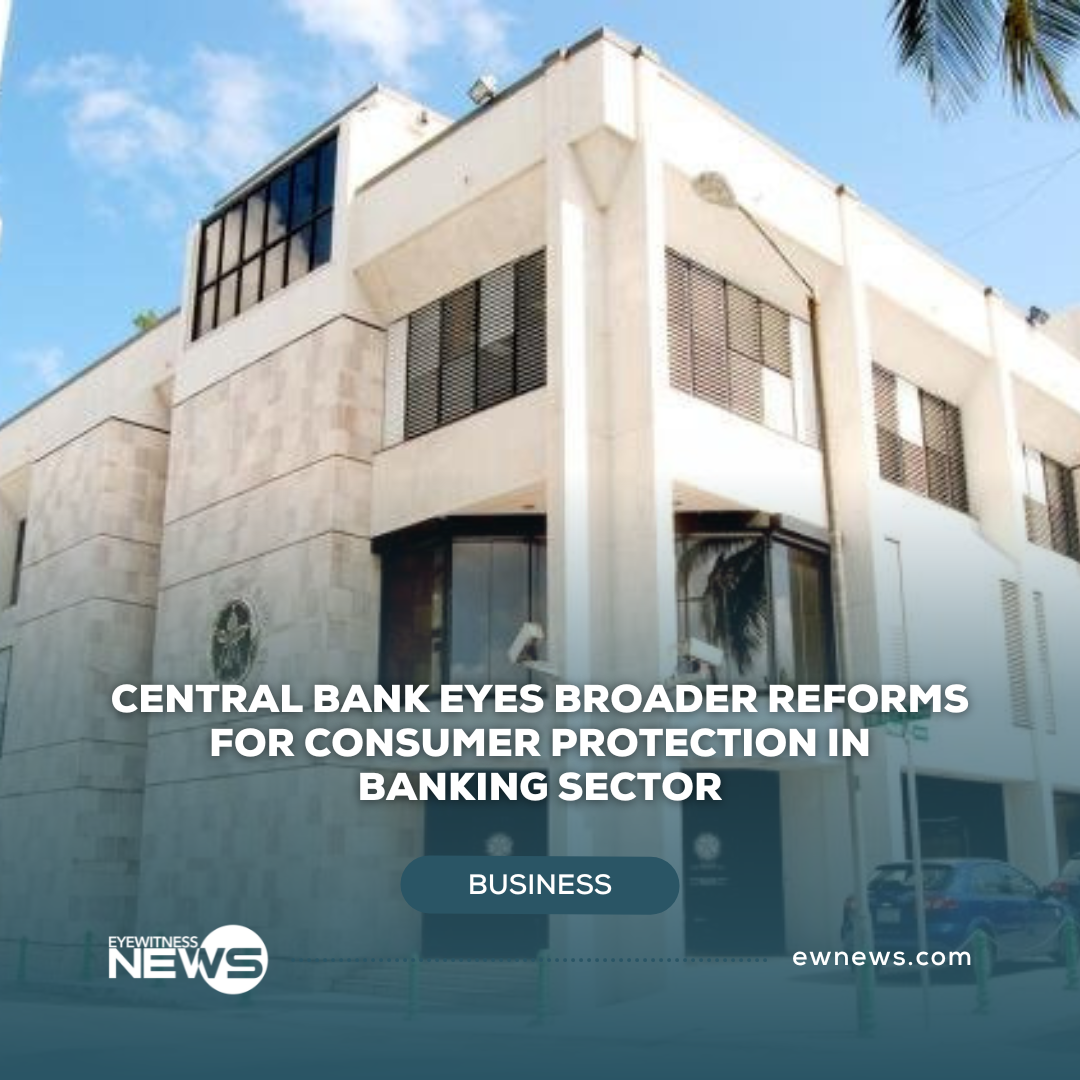NASSAU, BAHAMAS — The Central Bank is exploring broader reform proposals on fee-setting practices for financial institutions, such as banks, which could enable the government to legislate consumer protection and market conduct standards applicable to credit products.
These reforms could also grant the Offices of the Financial Services Ombudsman statutory independence.
In its latest semi-annual report on the “Cost Analysis on Comparability of Bank Fees” for June 2024, the regulator noted that it’s working on “multiple fronts” to advance targeted reforms on fee-setting practices for supervised financial institutions.
“However, the Central Bank is mindful that these interventions must be framed to preserve the soundness of deposit-taking institutions, which is fundamental to the stability and orderly functioning of the economy,” it said.
“Aside from interim measures under the remit of the Payment System Act (2012), which could take effect in the first half of 2025, broader reform proposals are also being explored that would enable the government to legislate consumer protection and market conduct standards, also applicable to credit products; and which could give the Offices of the Financial Services Ombudsman statutory independence.”
The regulator added: “Where cost is a significant factor, the Central Bank continues to craft reform proposals that would achieve more universal access to financial services in the less populated parts of The Bahamas. This includes identifying where supportive changes are needed in the infrastructure to improve access to both cash and digital payment services, and the role that agency banking could play in lowering supply-side hurdles.
“On affordability and access, within the remit of the Payments System Act (2012), the Bank is developing financial inclusion regulations to mandate a ‘basic’ deposit account product for consumers of low economic means. The targeted approach would be exposed to public consultation and would also be accompanied by proposals to add more transparency to the fee-setting process for digital wallets, credit and debit cards, and transactional accounts, which facilitate payments (savings and chequing accounts).”
Acting Press Secretary Keishla Adderley said last week that Prime Minister Philip Davis will meet with stakeholders to determine a “happy medium” on the need for reform in the commercial banking sector.
Progressive Liberal Party (PLP) Chairman Fred Mitchell has called on the Central Bank to more strictly regulate the service fees charged by commercial banks in The Bahamas. Mitchell, who is also Minister of Foreign Affairs and the MP for Fox Hill, lamented what he believes is a decline in customer service from banks despite higher fees.
His comments came after CIBC Caribbean announced an increase in service fees. Free National Movement (FNM) Leader Michael Pintard has pledged that his administration will introduce banking sector reforms if the FNM wins the next election. Pintard promised to undertake a series of measures to “improve the domestic banking sector.”
These measures would include increasing the regulatory remit of the Central Bank to assess the validity of banking fees, ensuring that fees are transparent and fair, and tasking the Central Bank with streamlining interbank transaction protocols to ensure they are efficient and cost-effective, using best-in-class technology.
In a subsequent Op-Ed released on Sunday, Pintard stressed that the FNM has always supported a strong and vibrant free market in The Bahamas where private businesses can compete and seek profits.
“This naturally applies to commercial banks operating in the domestic space. We have not and do not advocate for fixed price controls or anything of the sort. Financial service providers must have the flexibility to set prices and rates in a way that allows them to be competitive and profitable,” Pintard wrote.
“At the same time, we do not apologize for saying the regulatory regime should ensure that bank fees are fair, transparent, and conducive to promoting the broadest possible access for Bahamians to the formal banking sector. Our ambition must be much more than tackling ever-increasing bank fees; We in the FNM believe the banking sector in The Bahamas needs more competition and dynamism. Our proposals speak to this.”
He added: “We plan to make it easier for Bahamians to open a bank or become authorized financial service providers. The application process and criteria will be clear and publicly available, with transparent evaluation mechanisms and timelines. If applicants meet the core requirements, they should be granted a license to operate. We will do what we can to expand banking options for Bahamians. Right now, it takes too long to open a business bank account and conduct many critical transactions.”
The Central Bank’s latest assessment revealed that compared to December 2023 and mid-year 2022, domestic banks’ average surcharges for digital services stabilized. Although incremental firming in some ranges was evident against mid-2024, the average chequing account profile remains the most costly to manage, while adult savings accounts continue to rank in the middle of the cost range.
In terms of deposit account maintenance, a profiled retail banking customer employing maximum use of digital or electronic service options would face average monthly fees ranging from $2.63 to $15.91 per month, according to the June 2024 fee structure, the regulator noted.






